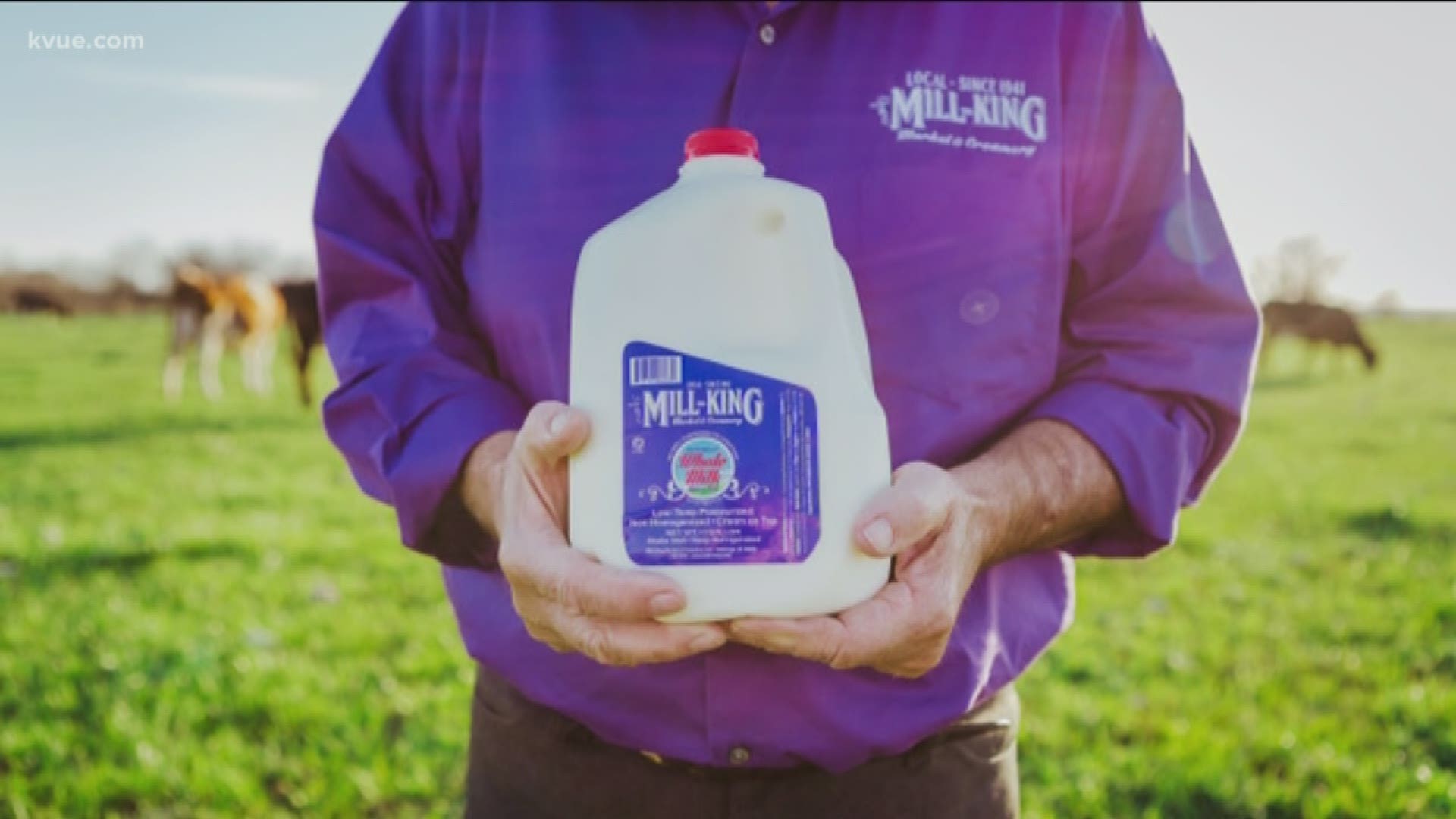AUSTIN, Texas — A Texas dairy farmer is predicting low milk futures will force many of his fellow dairy farmers out of business.
Craig Miller owns Mill-King Market and Creamery out of Waco. His products are sold all across the Lone Star State, including Austin in stores like Wheatsville.
Unlike many dairy farmers, he processes his own milk and doesn't belong to a co-op, so he sets his own milk prices.
But Miller said others belong to co-ops and their boards determine prices.
"They're locked into a contract with the co-op. And so they're told what they're going to get paid," Miller said.
So even if prices go up at the stores, dairy farmers don't see that money.
According to the Texas Department of Agriculture, milk was the third top commodity in Texas in 2017, bringing in $2.1 billion. 2017 has the most recent numbers as commodity statistics are updated every five years.
Darren Turley with the Texas Association of Dairymen told KVUE that future milk prices are not expected to increase any time soon and things are not looking good for dairymen.
RELATED:
"So our pricing then going forward, we already know is going to be extremely low for my June and going into summer," said Turley. "The projected process now that go through the summertime months would be significantly below production. We have had banking institutions already question loans on farms. And if they're going to go forward with them, continue to give them, you know, resources or not. And so the industry is really shaking right now. It's a very, very tough time."
Turley said people can help dairy farmers by purchasing dairy products and donating them to food banks.
Miller said he's doing OK. He's making home deliveries in the Waco area, which he didn't have to do before the coronavirus pandemic.
"As soon as COVID hit ... the restaurant business totally dried up. That was about 40% of what we did," Miller explained.
As if that's not bad enough news for farmers, Miller is also predicting a pseudo food shortage. He said the recession-type economy we're seeing affects everyone because there's just not enough money.
"Well, we're still going to have food. It just won't be in the variety we're used to seeing," said Miller.
Agriculture Commissioner Sid Miller said that while the current short supply of meat will last the next 30 to 45 days, there is no food shortage issue. Miller said it is a labeling and distribution problem.
Miller gave KVUE an example:
"We've got lots of eggs everywhere. Plenty of eggs for everybody. But you can't find them at the grocery store because you go to get a carton of eggs ... they're sold out. They're limiting people to one carton per family. The reason for that is, a lot of our eggs, everybody's cooking at home now. So, they need more eggs. But, we have a lot of eggs that are packaged to go to restaurants and in the airlines and cruise ships and hotel chains. But they come in 30 count flats and they're unlabeled. Well, the law says that the carton eggs has to have a farm name on. It has to be USDA inspected, has to have, you know, the size of the grade. Well, I was able to get a waiver from that. And now we can sell those 30 counts flats of eggs that we didn't have any home for," explained Miller.
Commissioner Miller also said the answer to solving the short supply of food is to reopen the economy.
"We're bringing the jobs back. We open restaurants. We get, you know, kids back in school this morning and we get back to life as normal and then course use cowboy logic would tell you, you know, everything would be normal," said Miller.
Craig Miller is luckier than most. His micro-farm store is unexpectedly doing well, making 15 times the profit than before the pandemic.
PEOPLE ARE ALSO READING:

